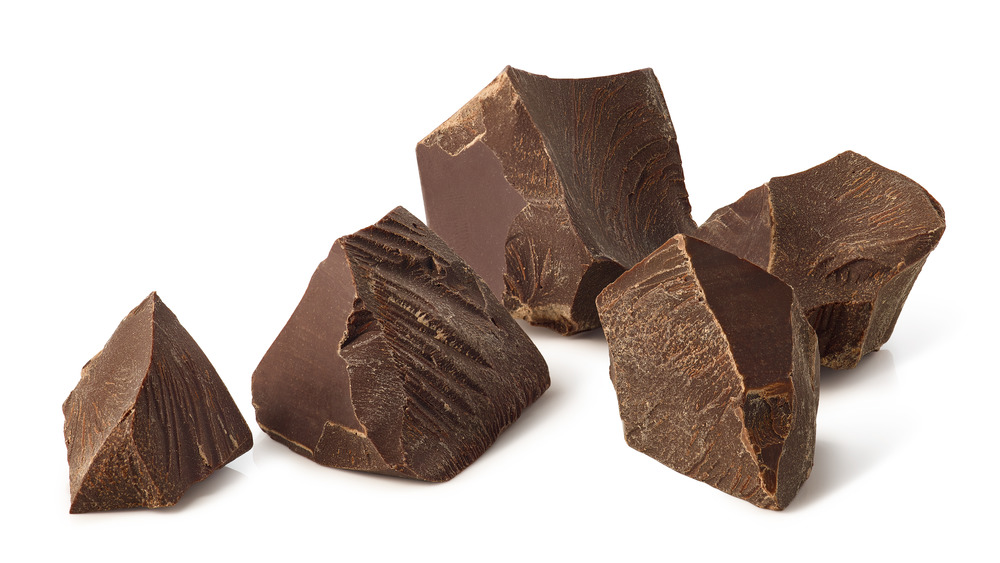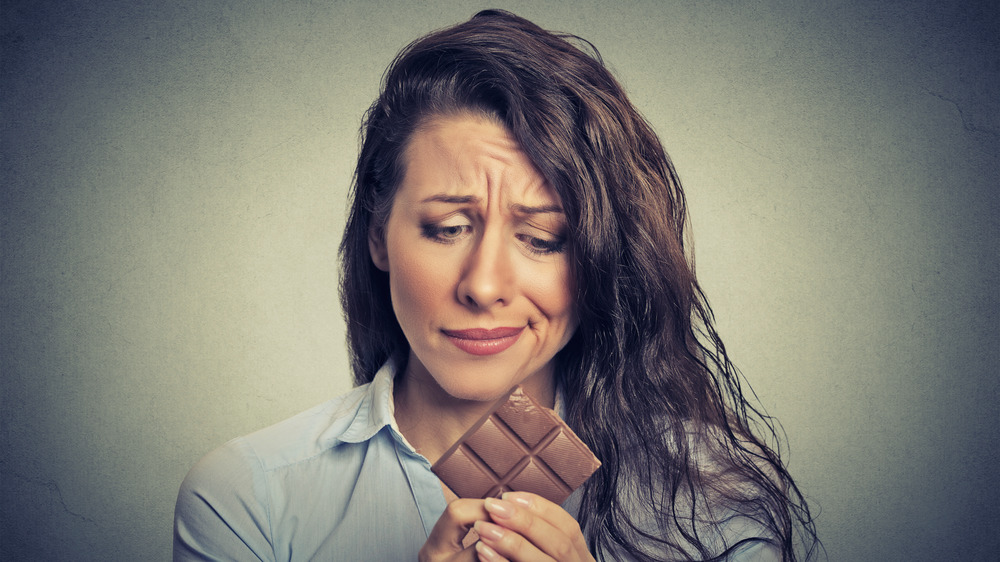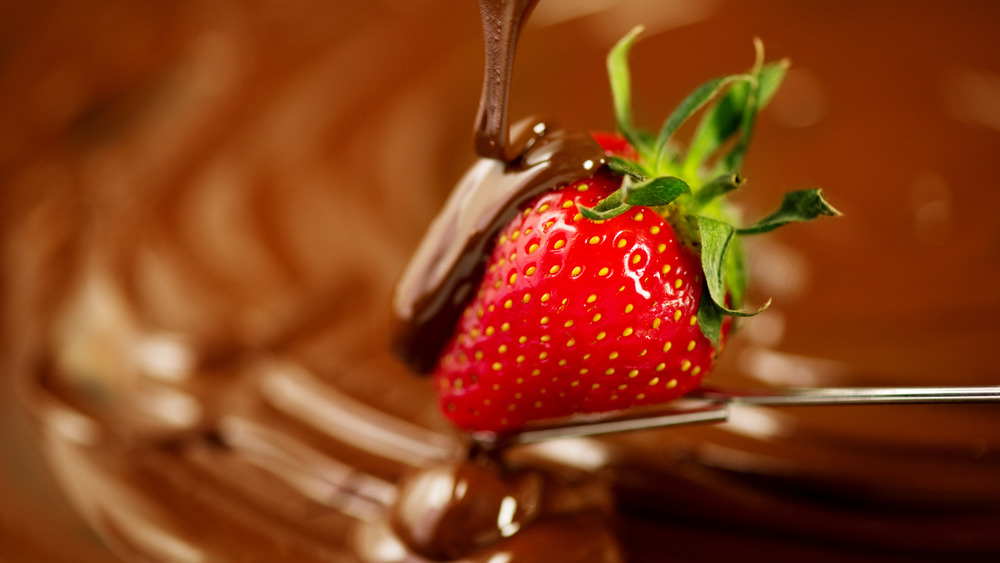Dark Chocolate Is Seriously Overrated. Here's Why
Once there was a delicious, wonderful substance called chocolate that was enjoyed by millions or perhaps billions of people worldwide. You could get it in two different versions: milk chocolate, for those who liked it super-sweet and creamy, and dark chocolate, for those who wanted just a teensy bit less sugar and a slightly more intense, yet still well-balanced, flavor. All the people feasted upon their chocolate of choice, and all was well in Candyland. But then a shadow fell upon the land and things became about 70 percent darker. Not only did milk chocolate fall into disrepute, but dark chocolate...well, it just wasn't the same anymore. Somehow this once-delicious candy had taken on the dull, heavy flavor of dirt, and eating it became as pleasurable as licking an ashtray.
At first, dark chocolate lovers thought, well, maybe it's just us, and felt that their own taste buds had somehow changed. But upon finding that old favorites like Special Dark and Mounds bars were still as tasty as ever, the realization dawned: It's not us; it's the chocolate that has undergone a transformation, and not for the better. What brought this about? The dreaded double curse: being acclaimed as healthy, quickly followed by being elevated to the status of trendy. Each revelation in turn had a detrimental effect that turned something that was once so palatable into a bitter pill to swallow (both literally and metaphorically).
How dark chocolate turned nasty
So how did this all get started, the healthification of a once delicious dessert? Blame the Mars Company. Not Mars as in the Red Planet, but Mars as in Snickers, Twix, and M&Ms. In 1982, according to Vox, they established the Mars Center for Cocoa Health Science. Strangely enough, the studies sponsored by a major chocolate manufacturer found out that chocolate does have its healthy properties, Specifically, it contains compounds called flavonoids which, yes, are very good for your health. And yes, the darker the chocolate, the more flavonoids, so the healthier it is.
Of course, chocolate manufacturers (Mars and others) took the whole idea of "healthy indulgence" and ran with it...way too far. As chef Alice Medrich told The Splendid Table, back in the pre-health hype day, most dark chocolate was 60 percent cacao or under. These days, higher percentage cacao bars of 70, 80, or even 90+ are trendy, and some even claim to enjoy chocolate that is 100 percent cacao, meaning there's zero sugar and no other type of flavoring in there. In other words, it's just a fancy, pricey version of that same unsweetened baking chocolate you once mistakenly took a bite of as a kid since it looked like candy and promptly spit out with a resounding "yuck!" Chocolate minus sugar equals a nasty lump of bitterness that's still just as yucky even at $10 a bar no matter how sophisticated it pretends to be.
Chocolate shouldn't be medicine
As Healthline points out, many different plant products contain flavonoids, so there's really no need to turn something that was once a joy to eat into yet another version of kale or broccoli. If we want something that is bitter in flavor and plantlike in nature, we've already got the original versions of both, as well as plenty of other flavonoid-packed leafy greens, and we can darn well eat them if we please or if our doctor tells us that we must. Having done so, we'll have earned the right to a treat that's actually worthy of the name. A small amount of your favorite chocolate candy, sugar and all, is a reward that's actually worth eating.
If you want a healthy indulgence that lives up to both halves of the name, however, you couldn't do better than a bowl of fresh strawberries or raspberries drizzled with a little chocolate syrup. Sure, the syrup itself won't offer much in the way of health benefits (Vox points out that you'd need to consume 24 ounces of it to get a "healthy dose" of flavonoids), but berries themselves are packed with flavonoids, low in calories, and go perfectly with delicious chocolate. Pair this dish with a cup of tea (black, white, green, or oolong) and you'll have all the flavonoids your healthy heart desires, but your taste buds won't be made to suffer for it.


